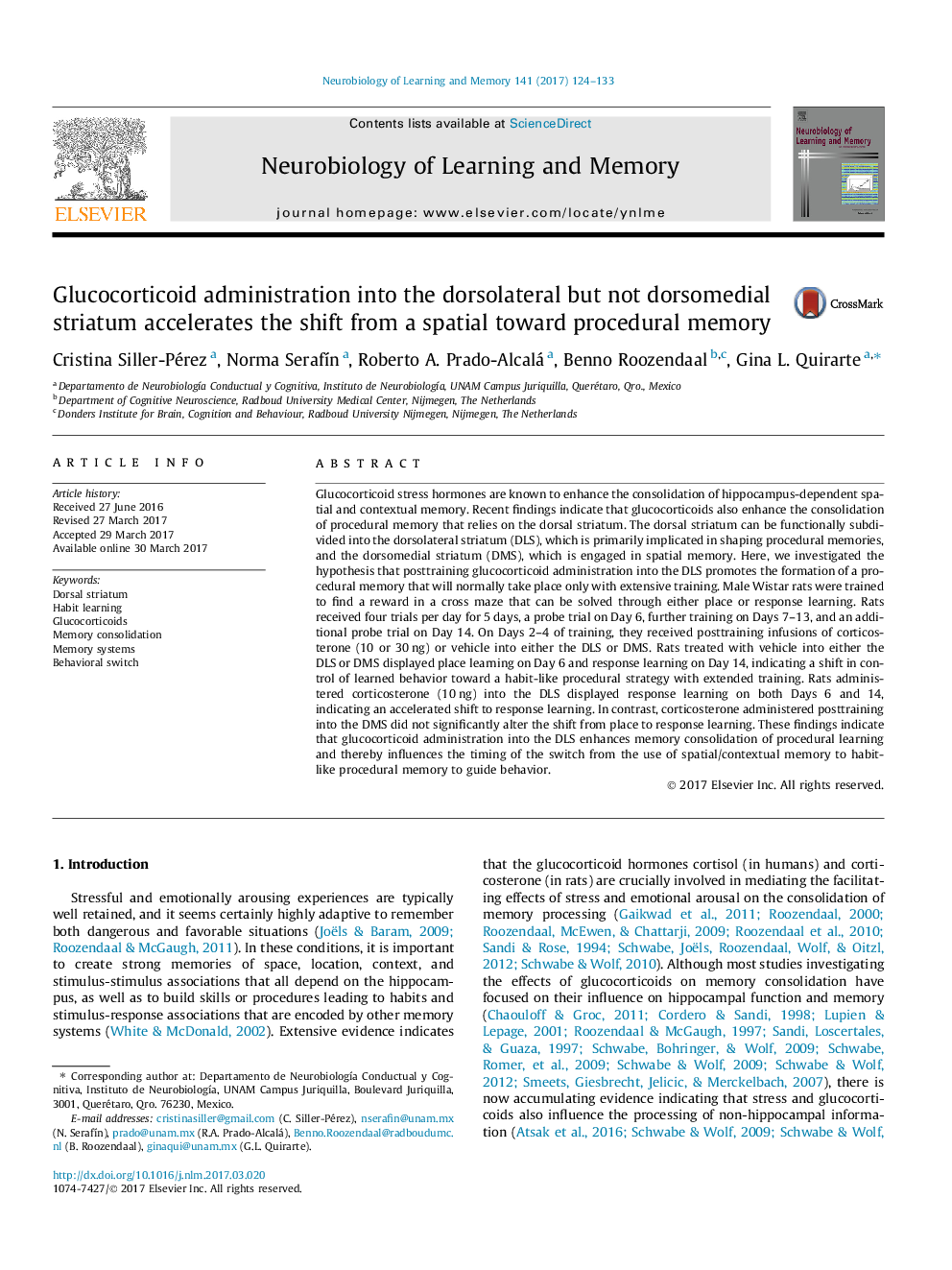| Article ID | Journal | Published Year | Pages | File Type |
|---|---|---|---|---|
| 5043175 | Neurobiology of Learning and Memory | 2017 | 10 Pages |
â¢Corticosterone administration into the DLS enhances procedural memory in a cross maze.â¢This memory enhancement accelerates the use of a response strategy to solve the task.â¢Corticosterone in the DMS does not alter the switch from place to response strategy.â¢Corticosterone does not affect the overall rate of task acquisition.
Glucocorticoid stress hormones are known to enhance the consolidation of hippocampus-dependent spatial and contextual memory. Recent findings indicate that glucocorticoids also enhance the consolidation of procedural memory that relies on the dorsal striatum. The dorsal striatum can be functionally subdivided into the dorsolateral striatum (DLS), which is primarily implicated in shaping procedural memories, and the dorsomedial striatum (DMS), which is engaged in spatial memory. Here, we investigated the hypothesis that posttraining glucocorticoid administration into the DLS promotes the formation of a procedural memory that will normally take place only with extensive training. Male Wistar rats were trained to find a reward in a cross maze that can be solved through either place or response learning. Rats received four trials per day for 5Â days, a probe trial on Day 6, further training on Days 7-13, and an additional probe trial on Day 14. On Days 2-4 of training, they received posttraining infusions of corticosterone (10 or 30Â ng) or vehicle into either the DLS or DMS. Rats treated with vehicle into either the DLS or DMS displayed place learning on Day 6 and response learning on Day 14, indicating a shift in control of learned behavior toward a habit-like procedural strategy with extended training. Rats administered corticosterone (10Â ng) into the DLS displayed response learning on both Days 6 and 14, indicating an accelerated shift to response learning. In contrast, corticosterone administered posttraining into the DMS did not significantly alter the shift from place to response learning. These findings indicate that glucocorticoid administration into the DLS enhances memory consolidation of procedural learning and thereby influences the timing of the switch from the use of spatial/contextual memory to habit-like procedural memory to guide behavior.
